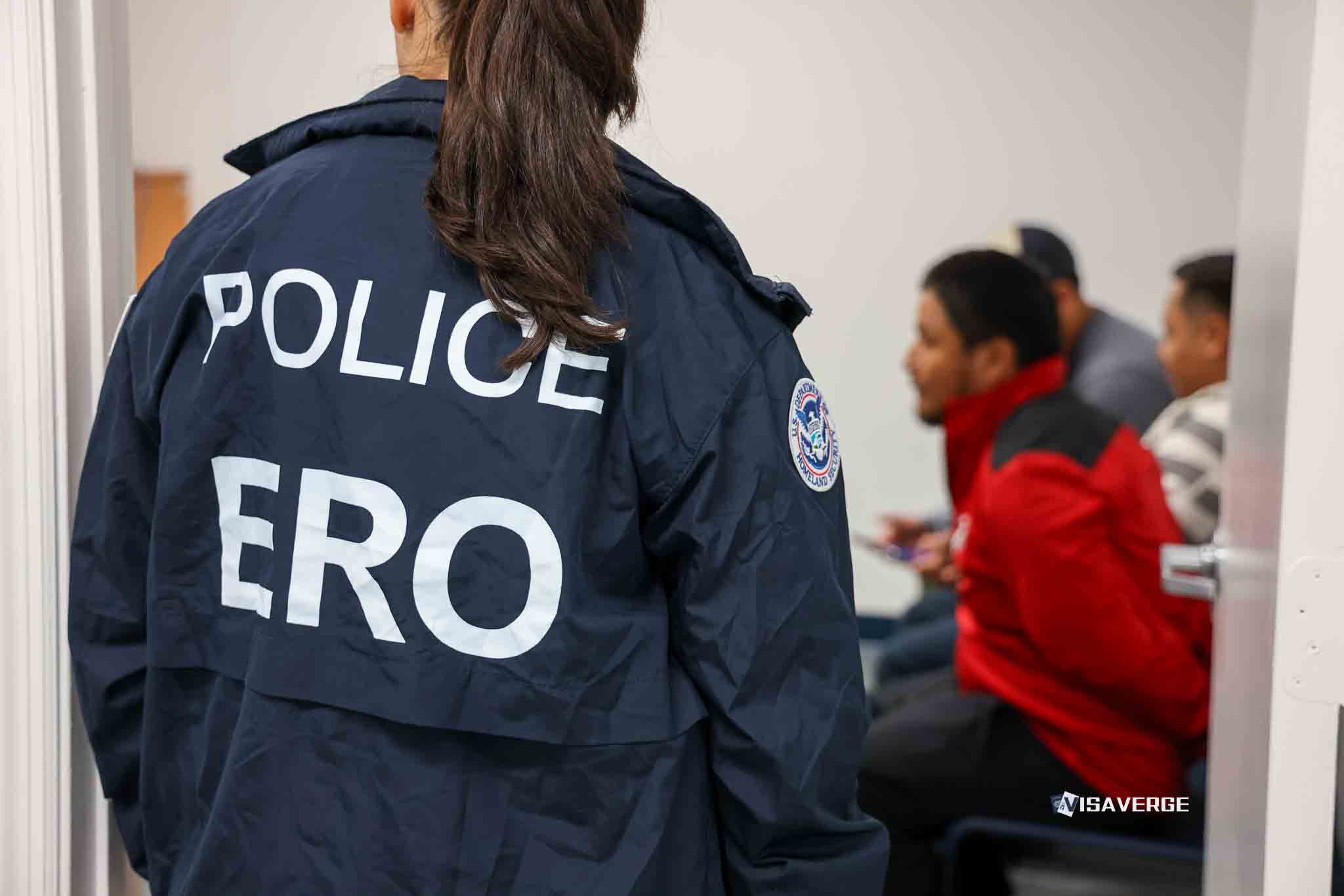Key Takeaways
• DHS launched first voluntary self-deport charter flight May 21, 2025, carrying 64 Colombians and Hondurans.
• 287(g) agreements surged in Texas, authorizing local law enforcement to enforce federal immigration laws.
• Project 2025 aims to expand expedited removal and detentions, potentially doubling immigrant detention capacity.
KXAN Investigation Reveals Shifting Deportation Practices and Their Impact on Texas Communities
In May 2025, KXAN, a respected Austin-based news outlet, released a series of investigative reports that shine a spotlight on how deportation policies are changing under the Trump administration and what these changes mean for Texas communities. The investigation, led by Senior Investigative Producer David Barer and Investigative Reporter Matt Grant, uncovers new deportation strategies, highlights disparities in enforcement, and examines the far-reaching effects on families, workers, and local economies. This article breaks down KXAN’s findings, explains the technical terms, and provides context for readers trying to understand the evolving landscape of immigration enforcement.

New Deportation Initiatives: Voluntary Flights and Controversial Removals
DHS Launches First “Self-Deport” Charter Flight
On May 21, 2025, the Department of Homeland Security (DHS) conducted its first voluntary charter flight under the Trump administration’s self-deportation initiative. This flight carried 64 citizens from Colombia 🇨🇴 and Honduras 🇭🇳 back to their home countries. Officials stressed that this was a voluntary charter flight, not an ICE enforcement action. In other words, the people on board agreed to leave the United States 🇺🇸 on their own, rather than being forcibly removed by Immigration and Customs Enforcement (ICE).
This approach marks a shift in how some deportations are handled. Instead of relying solely on forced removals, DHS is now offering certain migrants the option to depart voluntarily, sometimes with logistical support. According to analysis by VisaVerge.com, voluntary departure can sometimes help migrants avoid the harshest legal penalties, such as multi-year bans on re-entering the United States. However, critics argue that the pressure to “voluntarily” leave may not always be as free from coercion as it appears.
For more on voluntary departure procedures, readers can visit the official USCIS Voluntary Departure page.
Federal Judge Questions South Sudan Deportations
KXAN’s investigation also uncovered a troubling development involving the deportation of migrants to South Sudan 🇸🇸. On May 21, 2025, a federal judge ordered U.S. officials to appear in court to explain why people from Myanmar 🇲🇲 and Vietnam 🇻🇳 were being sent to South Sudan—a country they have no connection to. Lawyers for the affected migrants argue that these deportations may violate international law and basic fairness, since the individuals involved are not South Sudanese citizens.
This case raises serious questions about how deportation destinations are chosen and whether proper procedures are being followed. The Department of Homeland Security has not yet provided a public explanation for these removals, but the court’s intervention suggests growing concern about the legitimacy of such actions.
ICE-Sheriff Partnerships: Local Law Enforcement’s Expanding Role
Surge in 287(g) Agreements Across Texas
One of KXAN’s most significant findings is the rapid expansion of 287(g) agreements between ICE and local law enforcement agencies in Texas. These agreements, named after Section 287(g) of the Immigration and Nationality Act, allow local police and sheriff’s deputies to act as federal immigration officers. This means that local officers can question people about their immigration status, detain them for ICE, and even begin deportation paperwork.
After President Trump’s latest immigration directive, the number of these partnerships in Texas has surged. In March 2025 alone, at least one arrest under a 287(g) agreement was documented: a Mexican citizen charged with sexual assault. While supporters argue that these partnerships help remove dangerous criminals, critics warn that they can lead to racial profiling and erode trust between immigrant communities and law enforcement.
For more information on 287(g) agreements, visit the ICE 287(g) Program page.
Impact on Community Trust and Public Safety
The expansion of local-federal partnerships has sparked debate about their impact on public safety. Some law enforcement leaders say these agreements help keep communities safe by targeting serious offenders. However, immigrant advocates point out that fear of deportation can make people less likely to report crimes or cooperate with police, which can actually make neighborhoods less safe.
KXAN’s reporting includes interviews with community members who describe living in constant fear of being stopped by police for minor infractions, only to end up in deportation proceedings. This fear can also discourage parents from sending their children to school or seeking medical care, further isolating vulnerable families.
Enforcement Disparities: Migrants Targeted, Employers Spared
Focus on Migrant Workers, Not Employers
A central theme in KXAN’s investigation is the imbalance in immigration enforcement. While Texas law makes it illegal to employ undocumented workers, enforcement efforts overwhelmingly target the workers themselves—not the businesses that hire them. According to KXAN, federal authorities rarely prosecute employers, even when there is clear evidence of illegal hiring.
This enforcement gap has real consequences. Migrants face arrest, detention, and deportation, while employers who benefit from their labor often avoid any penalties. This approach not only disrupts families but also creates a climate of fear among workers, making them more vulnerable to exploitation.
Key points:
– Texas law prohibits hiring undocumented workers, but employer enforcement is rare
– Migrants face increasing enforcement, while businesses largely avoid consequences
– This disparity affects entire communities, not just individuals
Economic and Social Ripple Effects
KXAN’s reporting goes beyond the headlines to examine how deportation policies affect the broader Texas economy and society. The removal of large numbers of workers can disrupt industries such as agriculture, construction, and hospitality, which rely heavily on immigrant labor. Schools, hospitals, and local governments also feel the impact when families are separated or forced to relocate.
For example, teachers report that students whose parents have been detained or deported often struggle academically and emotionally. Healthcare providers see patients delay or avoid treatment out of fear. Local businesses may face labor shortages, leading to higher costs and reduced services.
Administrative Backlogs: The Human Toll of Delayed Decisions
The Case of “Diego”: Years in Limbo
One of the most powerful stories in KXAN’s investigation is that of “Diego,” a Venezuelan immigrant who fled political persecution and has been waiting for an asylum decision since 2014. As of April 2025, Diego’s case remains unresolved, leaving him in a state of legal limbo for more than a decade.
Diego’s experience is far from unique. The U.S. immigration system faces a massive backlog, with millions of cases pending before immigration courts. This means that many people seeking asylum or other forms of relief must wait years for a decision, often without the right to work or access to basic services.
Key facts:
– Millions of immigration cases are backlogged, leading to years-long waits
– Delays cause stress, uncertainty, and hardship for individuals and families
– Backlogs also strain the resources of courts, lawyers, and support organizations
For more information on immigration court backlogs, see the EOIR Caseload Statistics.
Policy Changes on the Horizon: Project 2025
What Is Project 2025?
KXAN’s investigation highlights growing concern about “Project 2025,” a policy framework that could dramatically reshape immigration enforcement if fully implemented. According to sources cited by KXAN, Project 2025 would:
- Expand expedited removal: Allowing more people to be deported without a court hearing
- Increase warrantless arrests and detentions: Giving authorities more power to detain immigrants without judicial oversight
- Reimpose case completion quotas on immigration judges: Pressuring judges to decide cases quickly, which could reduce opportunities for immigrants to present their cases or find legal help
- Cut funding for asylum and legal aid programs: Making it harder for immigrants to access legal representation
- Impose stricter requirements on immigration attorneys: Potentially limiting who can represent immigrants in court
- Double detention capacity: Increasing the number of people held in immigration detention centers to 100,000 at any given time
- End protections for DACA and TPS recipients: Removing legal protections for people who have lived in the United States for years under Deferred Action for Childhood Arrivals (DACA) or Temporary Protected Status (TPS)
- Expand E-Verify: Requiring more employers to use the electronic system to check workers’ immigration status, despite concerns about errors that can harm legal workers
- Increase state and local police involvement in immigration enforcement: Further blurring the line between local policing and federal immigration duties
Potential Impact on Immigrants and Communities
If Project 2025 moves forward, the effects could be sweeping. More people could face rapid deportation with little chance to defend themselves. Families could be separated, and long-term residents—including those brought to the United States as children—could lose their legal status. The expansion of detention centers could mean more people held for longer periods, often in remote locations with limited access to lawyers or family.
Employers would face new requirements to verify workers’ status, but as KXAN’s investigation shows, enforcement against businesses has historically been weak. This could leave workers caught in the middle, facing job loss or deportation while employers avoid penalties.
Real-Life Examples and Community Voices
KXAN’s reporting includes interviews with immigrants, advocates, law enforcement officials, and policy experts. These voices help illustrate the real-world impact of changing deportation policies:
- A mother in Houston describes her fear of sending her children to school after a neighbor was detained during a traffic stop.
- A business owner in Dallas worries about losing skilled workers if enforcement ramps up, but says he has never been asked to prove his employees’ immigration status.
- A sheriff in rural Texas supports the 287(g) program, saying it helps remove dangerous criminals, but admits it has strained relationships with immigrant residents.
These stories show that immigration enforcement is not just a legal or political issue—it’s a deeply personal one that affects people’s daily lives.
What Readers Need to Know: Practical Guidance
For those affected by these changes or concerned about their rights, here are some practical steps:
- Know your rights: Everyone in the United States, regardless of immigration status, has certain legal rights. The ACLU’s Know Your Rights page offers helpful information.
- Seek legal help: If you or someone you know is facing deportation or has questions about their status, consult a qualified immigration attorney. The American Immigration Lawyers Association provides a searchable directory.
- Stay informed: Follow trusted news sources like KXAN and official government websites for updates on policy changes and enforcement actions.
- Document your status: Keep copies of important documents, such as work permits, visas, and court notices, in a safe place.
Official Resources
For authoritative information on immigration enforcement and deportation procedures, visit the U.S. Department of Homeland Security’s Immigration Enforcement page.
Conclusion: The Road Ahead
KXAN’s investigation offers a detailed look at how deportation practices are changing in Texas and across the United States. The findings reveal a system that often targets migrants more than employers, relies increasingly on local law enforcement, and leaves many people in legal limbo due to administrative backlogs. With potential policy shifts like Project 2025 on the horizon, the stakes for immigrants, families, and communities are higher than ever.
As the debate over immigration continues, it’s clear that enforcement policies have far-reaching consequences—not just for those facing deportation, but for the entire fabric of Texas society. Staying informed, knowing your rights, and seeking qualified legal help are essential steps for anyone affected by these ongoing changes.
Learn Today
287(g) agreements → Partnerships allowing local police to perform federal immigration enforcement duties under Section 287(g).
Voluntary Departure → An immigration option enabling migrants to leave the U.S. on their own without forced removal.
ICE → Immigration and Customs Enforcement, a federal agency responsible for enforcing immigration laws and removals.
Expedited Removal → A fast-track deportation process allowing deportation without a court hearing for certain migrants.
Project 2025 → A proposed policy framework aiming to dramatically intensify immigration enforcement and detention procedures.
This Article in a Nutshell
KXAN’s 2025 investigation reveals shifting deportation tactics, from voluntary flights to increased local enforcement partnerships, impacting Texas immigrants and communities deeply amidst a looming policy overhaul.
— By VisaVerge.com
Read more:
• Trump Administration Unleashes Deportation Blitz Nationwide
• Trump Administration Slammed for Secret Deportation Move
• Appeals court orders return of Daniel Lozano-Camargo after deportation
• Widmer Josneyder Agelviz-Sanguino missing after Houston deportation
• Deportation fears in Hawaii drive teachers to seek civil rights training








